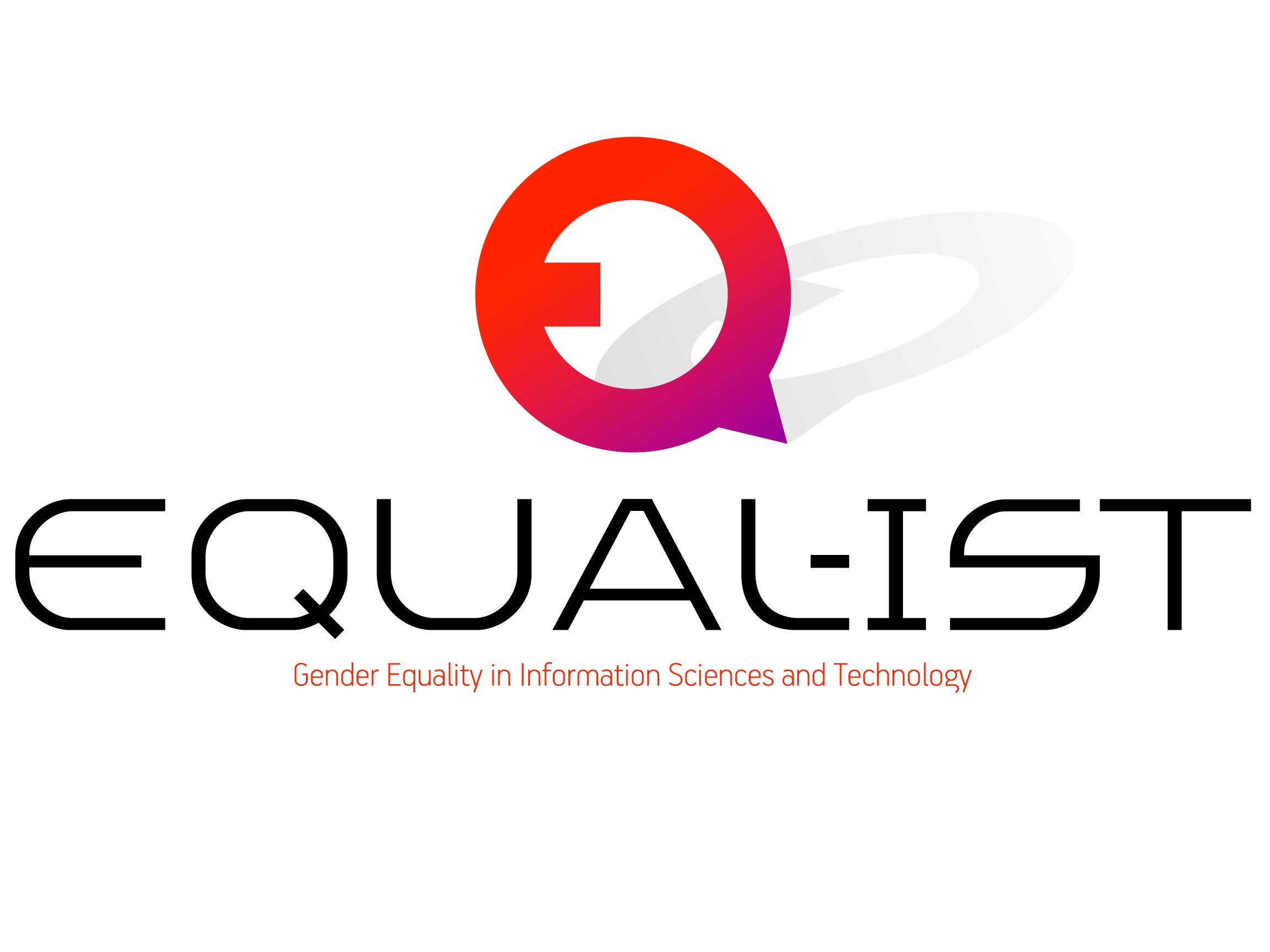Conference on Gender Equality Policies in Research Institutions: Promoting transformative and sustainable changes
EQUAL-IST project, Gender Equality Plans for Information Sciences and Technology Research Institutions, began three years ago, to introduce structural changes to enhance gender equality in (IST) research institutions. The Conference gathered Gender/RRI experts, decision makers to middle managers, academic staff at EU Research Institutions and Universities, policy makers and professors and Gender Equality bodies. The EQUAL-IST project Coordinator Vicky Moumtzi (ViLabs) and the Conference organizer Maria Sangiuliano (Ca’ Foscari University) welcomed participants and the Conference opened the Head of Sector in Gender, European Commission, DG Research and Innovation, Mina STAREVA presenting the perspectives and challenges on gender equality policies in research and higher education towards Horizon Europe. In the following Prof. Maxime Forest (Yellow Window) expert in institutional politics of gender equality, the Europeanization of gender equality policies and the politics of feminist knowledge circulation talked about the institutions’ transformation from inside. The session closed Prof. Claude Draude (GeDIS -Gender/Diversity in Informatics Systems, University of Kassel) presenting significant research outcomes on Gender and diversity inclusive of ICT research and design. Afterwards, EQUAL-IST project Coordinator and the representatives of the six RPOs introduced to the audience the experiences from implementing Gender Equality Plans in ICT/IST. Those IST/ICT institutions belong to the University of Modena and Reggio Emilia (Italy), the University of Muenster (Germany), Kaunas Technical University (Lithuania), Simon Kuznets Kharkiv University (Ukraine), University of Minho (Portugal) and the University of Turku (Finland). The EQUAL-IST project has developed methods and tools that the project RPOs used to design and implement Gender Equality Plans. However, EQUAL-IST designed such methods and tools to be used in general, by any ICT/IST Research Organization who would like to design a GEP. Therefore, in the next session, the project partners presented the solutions they developed and two experts leading the wider networks across Informatics Europe, and ACM Europe provided their feedback. It has been our honour to join our session Erika Abraham and Reyyan Ayfer and receive feedback from the international networks of ICT/IST Institutions and Researchers. Erika Abraham leads the Informatics Europe working group Women in Informatics Research and Education (WIRE) and Reyyan Ayfer is the founding Chair of ACM-W Europe and currently Vice Chair of ACM-W. They both recognised the value of the methods and tools and confirmed their network members interest to adopt them. The Idea Crowdsourcing Platform that facilitates the co-design of tailored Gender Equality Plan presentation, held Dr Elena Gorbacheva from the University of Muenster. The Participatory Audit Methodology that small-medium sized ICT/IST Research Organizations can adapt to their needs presented Prof. Claudia Canali from the University of Modena and Reggio Emilia and the EQUAL-IST online Toolkit presented Prof. Agostino Cortesi, vice-director of DAIS of UNIVE University Ca’ Foscari, Venice. As a part of EQUAL-IST project synergy activities, the last session was dedicated to gathering representatives of relevant EU funded projects to exchange knowledge on sustainable structural transformations for gender equality in research organisation: evaluation and monitoring, communities of practices and capacity buildings to leverage sustainability of change. This panel session consisted by speaker for five projects (EQUAL-IST project, Dr. Maria Sangiuliano, Ca’ Foscari University- DAIS), (GENERA project, Dr. Thomas Berghofer, DeSY) (EFFORTI project, Dr. Susanne Bührer-Topçu, Fraunhofer Institute), (GE Academy Project, Dr. Lut Mergaert, Yellow Window), and (ACT on Gender Project, Dr. Jorg Muller, Universidad Oberta de Catalunya). The Conference closed with the Certificate Award Ceremony.



